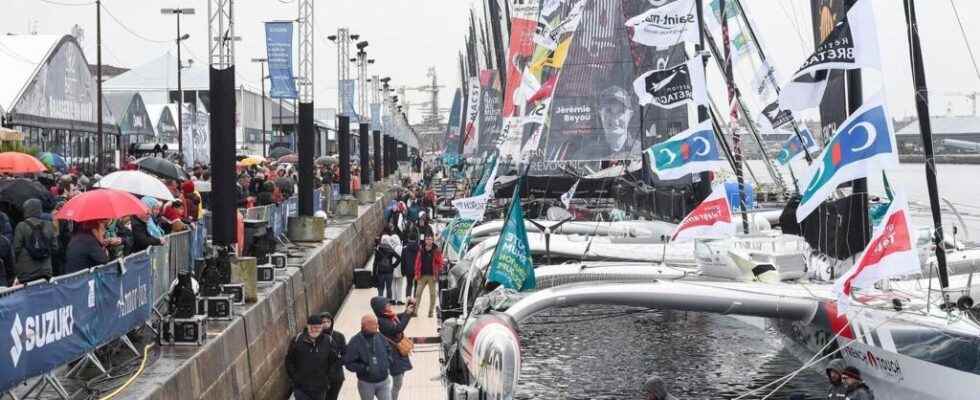The start of the 12th edition of the Route du Rhum, the famous sailing race between Saint-Malo, in Brittany, and Pointe-à-Pitre in Guadeloupe, has been postponed for a few days due to weather conditions. But for several weeks, on the pontoons, the environmental impact of the event has been questioning skippers and sailing fans.
Some two million spectators are expected in Saint-Malo and the surrounding area (over the two weeks preceding the start), and around a hundred motorized support boats. This twelfth edition should break all records in terms of attendance and commercial exploitation.
In the midst of all this, the skippers, not spared by the critics either, are trying hard to reconcile sporting issues and ecological awareness, reports our special correspondent, Thomas de Saint-Léger. Because crossing the seas and oceans is a privilege, a responsibility too. To bear witness to the evolution of the environment, Fabrice Amedeo has installed a laboratory area on board his racing boat. “It’s a CO2, salinity and temperature sensor. I work with several scientists, it allows them to better understand the consequences of global warming on the ocean, explains the citizen sailor. I also have a second sensor for microplastics. And the great novelty on this Route du Rhum is an environmental DNA sensor which will make it possible to measure the presence of living organisms, and therefore to measure biodiversity. »
Replace carbon with flax
Initiatives that do not completely make us forget the ecological cost of offshore racing. Race for innovation: always faster, boats are built with highly polluting materials. For the experienced Kito de Pavant, it can’t last any longer: “You just need to get together and come to an agreement, we are capable of changing, perhaps going a little slower, making boats more eco-friendly. »
Replace carbon with flax, as on the new boat of the double winner of the Route du Rhum, Roland Jourdain? The idea is debated, but it has its opponents, like Finisterian Jérémie Beyou, skipper of Charal, a brand new racing car. “These are fabulous boats, which make people dream, and I think that from time to time, we also have the right to dream a little, we also have the right to love sport, to love competition, to love mechanics, you shouldn’t be ashamed of that all the time either. »
In a text published in early October, several skippers from the La Vague collective – including Francis Joyon and François Gabart – called for a new model of competition, more respectful of the environment. In this column entitled ” Our magnificent sport must change “, the sailors point the finger at the” damning assessment “of the current offshore racing model.
